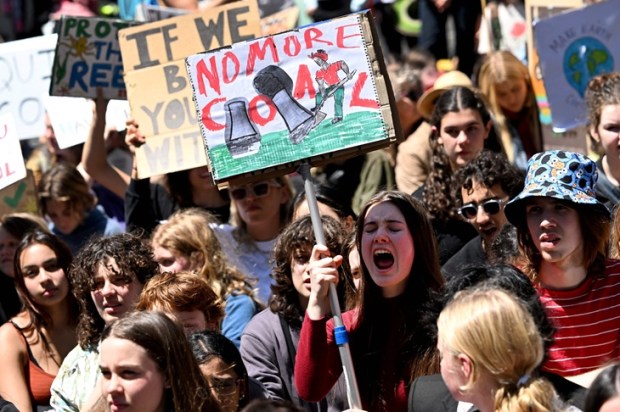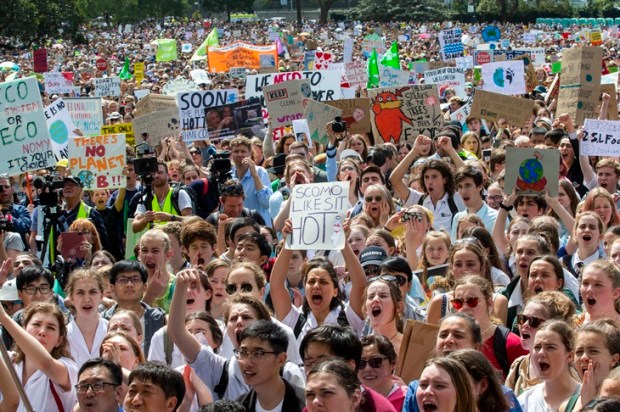The Australian people will soon be asked through a national referendum to alter the Constitution to establish an Aboriginal and Torres Strait Islander Voice.
It is proposed that non-elected representatives of a racially identified cohort called ‘First Peoples’ be a Voice-committee-of-oversight to determine the course of parliamentary and executive government decisions and actions. It is proposed that a new Chapter IX – Recognition of Aboriginal and Torres Strait Islander Peoples, be added to the Constitution, and that the government be trusted to devise the text without public foreknowledge. Further, there is no definition provided for the cohort referred to as ‘First Peoples’ – a term alien to Australia or the traditional Aborigines of this continent.
To propose alterations and additions to the text of the Australian Constitution, there are two fundamental principles that need consideration before embarking on the exercise: the designation of authority, and the principle of the separation of power.
The Constitution defines the structure of government for the nation of Australia. To cite a party (entity, body, or person), in the Constitution is, ipso facto, to delegate power, authority, and responsibility to that party. The moment a party is mentioned in the Constitution, that party is placed alongside and in relationship to the other parties in the document. To mention a party in the Constitution is to ascribe power, but to ascribe a party with the title ‘First Peoples’ is to not only ascribe power, but also priority.
The second consideration is that of the democratic principle of the separation of powers. Australia has a democratic form of government based on the principle of the separation of powers, as does Canada, Britain, the United States of America, Ireland, New Zealand, India, Japan, Italy, and many more. The division of power in a democratic system separates the legislature (Parliament), the executive (government) and the judiciary (courts) and thereby creates checks and balances. This system goes all the way back to the Magna Carta in 1215 by King John and his barons wherein the document effectively limited the power of the executive (sovereign king). The principles of this 800-year-old document are still fundamental to the operation of state and Commonwealth government in Australia. It is the basis of what is often referred to as the rule of law.
The proposal to create, by way of an extra Chapter in the Constitution, a Voice committee to oversee the Parliament and the executive is to create a fourth tier to the structure of democratic government and to neutralise the ancient tradition of the separation of powers. A democratic system of government will be replaced in Australia with a form of totalitarian government whereby the Australian Parliament and Executive will be rendered subservient to the wishes and directives of the Voice committee.
Until now, we have had a democratic form of government across the states and Commonwealth where one person had one vote. The Voice system of government will mean one vote equals very little to nothing and representative government will be undermined as decisions by elected representatives will be vetted by the unelected Voice committee: a committee that will be a fully funded para-Parliament.
When Arthur Phillip arrived in Australia, it was the Declaration of February 7, 1788 with the reading of King George III Letters Patent that established British government and British law over this continent. It was the first time in history that such a declaration of sovereign rule included benevolence towards the inhabitants whereby they were immediately considered British subjects, equal under the law and with equal rights to all other British subjects. And it was the first time in history that slavery was banned.
In 1855, the Constitution of New South Wales was made law, allowing for self-government in the colony. Constitutions for the other colonies soon followed, as did secret ballot elections – later known as the Australian ballot as the system was first introduced in Australia. In 1900, Commonwealth of Australia Constitution Act passed the British Parliament, which was inaugurated here in 1901 as a federation of the states. Aborigines first got a ‘voice’ to Parliament in 1856, along with everyone else, and Aborigines voted in the referendum for Federation, along with everyone else.
Reviewing the discussion on the ‘voice debate’, it is reasonable to conclude, as Anthony Albanese’s tee-shirt declared the night he attended a Midnight Oil concert, that the Voice will lead to Treaty and to Truth-Telling, where Voice has to do with power, Treaty is to do with money – compensation and taxes, and Truth-Telling involves education and children.
The recent Pathway to Treaty Act, 2023, in Queensland, clearly declares that the ‘First Nations’ cohort (not defined) do not see themselves as Australians but claim to be a separate sovereign power who are claiming Crown land as their own and want Australians to pay taxes (rents) to live on and have homes on, ‘First Nations’ land. Since ‘compensation’ has also been mentioned in the context of the proposed Voice referendum, it follows that treaty and ‘truth-telling’ are also in line for legislation by the Commonwealth Government. The recent enactment of the Western Australian Aboriginal Cultural Heritage Act of 2021, is also a sign of things to come.
The proposal to create a Voice to Parliament and acceptance of the Uluru Statement is nothing short of a government-sponsored succession from the Commonwealth.
The hidden objective is to recognise and empower a separate sovereign state to oversee the government of Australia.
Now, we may see debate and difference of opinion expressed under our current system of government and in our parliaments, but we have a functioning democracy with a separation of powers system for checks and balances with regular elections to change a government if the majority of the population so determine.
What is being proposed is a social, political, and legal experiment. It is the most dangerous threat to our democracy and system of government since Federation in 1901.
Dr Christopher Reynolds is the author of What a Capital Idea – Australia 1770-1901.

























